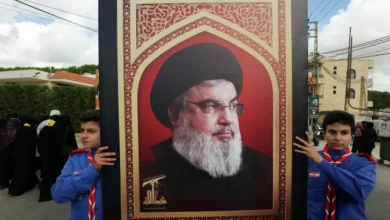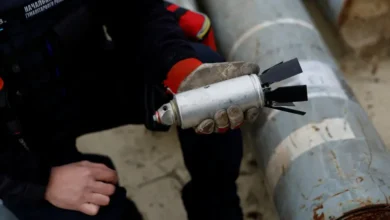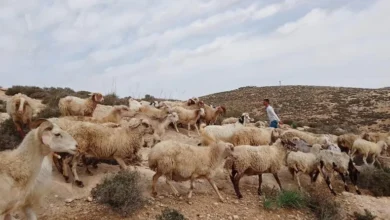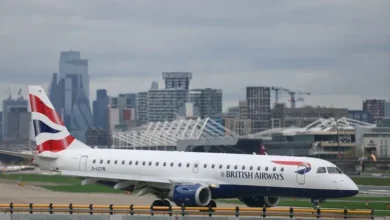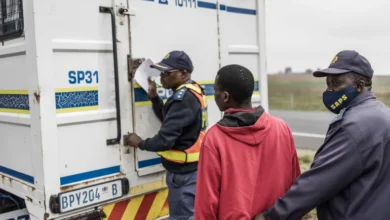Greek NGO leads ‘crazy’ bid to rid Mediterranean of plastic waste
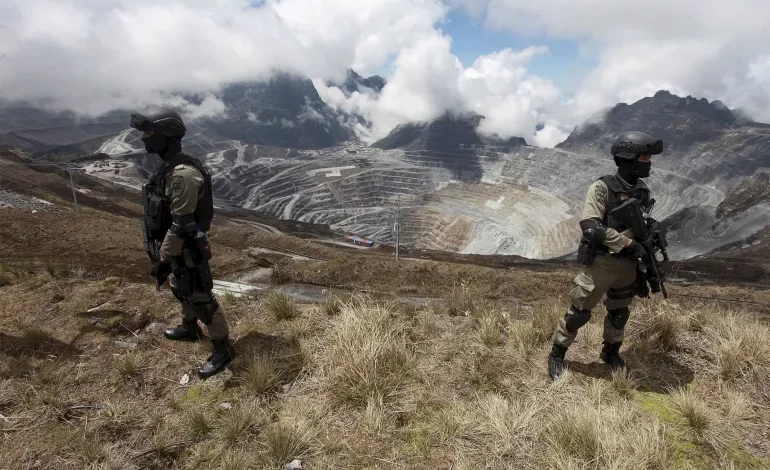
Three divers’ heads bobbed in the sea. Then, two white balloons surfaced. Attached to them, recovered from a depth of 16 fathoms (29 metres, 96 feet), was the brown tangle of a discarded plastic fishing net.
The underwater cleanup, barely 1.5km (1 mile) offshore the island of Salamis and 40km (24 miles) from Athens, was a tiny contribution to growing efforts to rid the Mediterranean Sea of plastic waste.As it celebrates its 50th World Environment Day, the United Nations Environment Programme (UNEP) acknowledges that fishing plastic out of the sea is like grabbing a tiger by the tail.
“Trying to tackle the problem once it’s in the ocean is a big mistake. We need to stop it before,” Alejandro Laguna, UNEP’s director of communications for the Mediterranean, told Al Jazeera.
“No matter how many people we involve, we have areas in the ocean we just can’t reach, or the plastic might become so small, we might never be able to [retrieve] it,” he said.UNEP’s latest measurements have found an average of 64 pieces of microplastic – fragments smaller than 5mm (0.2 inches) across – in every square metre (10 square feet) of the Mediterranean Sea.
Plastic takes years to break up and degrade at sea. Such a quantity on the surface suggests a staggering level of pollution below.
UNEP is convening a global treaty conference to cut plastic pollution and recycle. If agreed, it would come into force incrementally beginning next year.But the European Union has been legislating plastic reduction and recycling measures since the turn of the century and has found itself outmanoeuvred.
Half of the plastic ever produced was manufactured this century, research (PDF) shows, leading to ever-higher rates of pollution.But the European Union has been legislating plastic reduction and recycling measures since the turn of the century and has found itself outmanoeuvred.
Half of the plastic ever produced was manufactured this century, research (PDF) shows, leading to ever-higher rates of pollution.Enaleia, the Greek non-profit organisation that retrieved the fishing net off Salamis, has made it its mission to grab the tiger by the tail.
That has meant solving an economic problem. Picking up rubbish is expensive. It requires human hands and transport.
The contribution of Enaleia’s founder Lefteris Arapakis has been to reach a cost per kilo few thought possible, and he did it by piggybacking on existing activities.The revolution of Enaleia
“I am probably the worst fisherman in Greece,” said the 29-year-old Arapakis, a fifth-generation fisherman who scandalised his family by studying economics and business.
“We used to go fishing and my family boat would fill with plastic. The crew would throw it back into the sea. I said, what are you doing?”
Arapakis did the math. There are an estimated 14,500 licensed fishing boats in Greece. If every one of them brought its plastic to port, they could gather tonnes a day. The problem was convincing fishermen to do it.
“At first, they think we’re crazy,” said Arapakis. “But we try to find the activist fishermen and the decision-makers in every port. When you reach them, something magical happens. They start to recruit the rest of the fishermen on their own. That’s how we went from two [boats] to 3,000 in the whole Mediterranean.”
That includes 1,200 in Greece – almost a 10th of the fleet.
Arapakis has targeted the countries with the biggest packaging consumption and most developed industrial base to undertake the recycling – Greece, Spain and Italy.
His team has just recruited its first activist fishermen in Egypt and Kenya.Nominal stipend
Fishermen receive a nominal stipend of up to 50 euros ($53) a month, provided by blue chip donors such as Pfizer, Gant, Allianz and the shipowner, Costas Lemos’ Foundation, but conviction is what really drives them.
“Nets have cork along their top edge and lead weights along the bottom edge, and are meant to stand vertically in the water,” fisherman Nikolaos Mentis told Al Jazeera.
“Plastic bags drift into nets, and by catching the current tip them sideways so you can’t catch any fish.”
Plastic also causes expensive mechanical problems.
“If ever I see a plastic bag floating around that might get caught in the propeller I try to gather it up,” said Mentis. “If I’m not affected, someone else will be. It’s not just plastic shopping bags, but also large, thick nylon sheeting used by the fish farms.”The turning point came with the COVID-19 pandemic.
“In the first five days of the pandemic lockdown, we lost 40 percent of our donors,” said Arapakis, who was run off his feet.
A friend advised him to delegate more tasks to locals in the 42 Greek ports where Enaleia operates dumpsters.
“By including locals behind the scenes, we showed them that we were legitimate, and that raised the number of participating fishermen. Suddenly, our plastic collection took off,” said Arapakis. “We went from 15 tonnes [in 2019] to 50 [in 2020], and to 150 [in 2021].”
His latest plan is to piggyback on holidaymakers.About 43,000 tonnes are simply missing from the equation, most of them presumed scattered in the environment.
But Enaleia has grown 17-fold in five years, more than tripling each year. At that rate of growth, it could be recovering 114,000 tonnes of plastic a year in another five years.
Inspiring plastic
Enaleia, whose name means “in the sea”, has also captured the public imagination by focusing on seaside plastic. Its largest category of recovered plastic is discarded fishing nets, which are turned into synthetic fibre clothing.
Enaleia recently partnered with Skyplast, a plastics recycling plant west of Athens, where it sends its haul for processing.
Skyplast is a market leader, responsible for 17 percent of Greece’s plastic recycling, but it has gone beyond the grunt work of sorting, shredding and hot-washing soft drink bottles.Skyplast recruited blockchain code writers to create a tracing process from cleanup to repurposed retail products and markets its plastic chips as Recovered Seaside Plastic.
It has shared this technology with other recyclers through a certification vehicle called KeepSeaBlue.The initiative is working. British supermarket chain TESCO proudly advertised that it was using Recovered Seaside Plastic from Greece to package its fresh fish.
“Retailers have no choice but to make their products friendlier to the environment,” KeepSeaBlue spokesperson Maria Karka told Al Jazeera.
“There’s a great demand from the market and consumers for that. So big players are shifting to more responsible practices.”
Moral advantage could help the recycling industry compete with cheaper virgin plastic.
“What I’m seeing with certain brand owners is they’re all up for sustainability and using recycled material and everything, but it all comes also to a matter of price,” said Hana Pertot, Skyplast’s director of sales.

